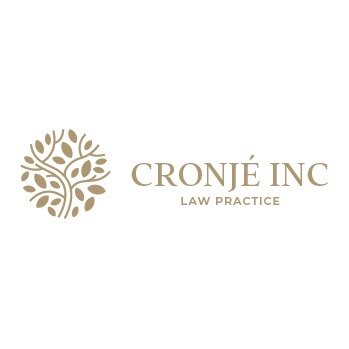Best Guardianship Lawyers in Namibia
Share your needs with us, get contacted by law firms.
Free. Takes 2 min.
Or refine your search by selecting a city:
List of the best lawyers in Namibia
About Guardianship Law in Namibia:
Guardianship in Namibia refers to the legal relationship between a guardian and a minor child or an adult who is unable to make decisions for themselves. The guardian is responsible for making important decisions on behalf of the minor or incapacitated person, such as healthcare, education, and general welfare. Guardianship is typically established through a court process.
Why You May Need a Lawyer:
There are various situations where you may need a lawyer for guardianship matters, such as disputes over guardianship of a minor, establishing guardianship of a child in need of care and protection, or petitioning for guardianship of an incapacitated adult. A lawyer can provide legal advice, represent you in court proceedings, and help ensure that your rights and the best interests of the minor or incapacitated person are protected.
Local Laws Overview:
In Namibia, guardianship is governed by the Children's Status Act of 2006 and the High Court Rules. The law prioritizes the best interests of the child or incapacitated person when making decisions regarding guardianship. The court will consider factors such as the relationship between the guardian and the minor or incapacitated person, the ability of the guardian to care for them, and the preferences of the minor if they are old enough to express them.
Frequently Asked Questions:
1. What is the difference between guardianship and custody?
Guardianship involves making decisions about a person's welfare and affairs, while custody refers to the physical care and control of a child. Guardianship is a broader concept that encompasses custody.
2. How can I become a guardian in Namibia?
To become a guardian in Namibia, you must apply to the court and demonstrate that you are suitable and willing to take on the responsibilities of guardianship.
3. Can guardianship be revoked?
Yes, guardianship can be revoked by the court if it is found to be in the best interests of the minor or incapacitated person.
4. Can a guardian make decisions without court approval?
A guardian must typically seek court approval for major decisions, such as relocating with the minor or incapacitated person, major medical procedures, or significant financial transactions.
5. Can a guardian be held liable for the actions of the minor or incapacitated person?
A guardian can be held liable if they fail to fulfill their duties of care or if they engage in negligent or harmful actions themselves.
6. Can a guardian be removed from their position?
A guardian can be removed from their position by the court if they are found to be unsuitable or if it is in the best interests of the minor or incapacitated person.
7. Can a relative be appointed as a guardian?
Yes, a relative can be appointed as a guardian if they are deemed suitable and willing to take on the responsibilities of guardianship.
8. Can a guardian be appointed for an adult who is incapacitated?
Yes, a guardian can be appointed for an adult who is incapacitated and unable to make decisions for themselves due to physical or mental incapacity.
9. What rights does a guardian have?
A guardian has the right to make decisions about the welfare and affairs of the minor or incapacitated person, provided they act in their best interests.
10. How can a lawyer help with guardianship matters?
A lawyer can provide legal advice, represent you in court proceedings, help with the guardianship application process, and ensure that your rights and the best interests of the minor or incapacitated person are protected.
Additional Resources:
For more information on guardianship in Namibia, you can contact the Ministry of Gender Equality, Poverty Eradication, and Social Welfare or seek assistance from legal aid organizations such as the Legal Assistance Centre.
Next Steps:
If you require legal assistance with guardianship matters in Namibia, it is advisable to consult with a qualified lawyer who specializes in family law or guardianship. They can guide you through the legal process, represent you in court, and ensure that your rights are protected.
Lawzana helps you find the best lawyers and law firms in Namibia through a curated and pre-screened list of qualified legal professionals. Our platform offers rankings and detailed profiles of attorneys and law firms, allowing you to compare based on practice areas, including Guardianship, experience, and client feedback.
Each profile includes a description of the firm's areas of practice, client reviews, team members and partners, year of establishment, spoken languages, office locations, contact information, social media presence, and any published articles or resources. Most firms on our platform speak English and are experienced in both local and international legal matters.
Get a quote from top-rated law firms in Namibia — quickly, securely, and without unnecessary hassle.
Disclaimer:
The information provided on this page is for general informational purposes only and does not constitute legal advice. While we strive to ensure the accuracy and relevance of the content, legal information may change over time, and interpretations of the law can vary. You should always consult with a qualified legal professional for advice specific to your situation.
We disclaim all liability for actions taken or not taken based on the content of this page. If you believe any information is incorrect or outdated, please contact us, and we will review and update it where appropriate.
Browse guardianship law firms by city in Namibia
Refine your search by selecting a city.













